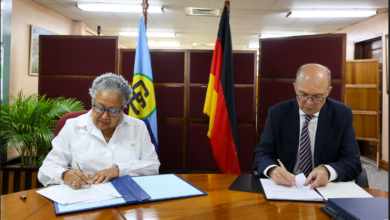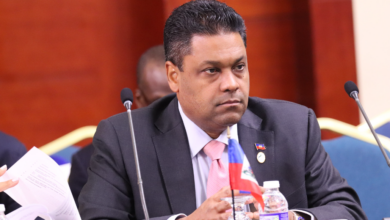CARICOM Secretariat, Turkeyen, Greater Georgetown, Guyana) Dr Edward Greene, Assistant Secretary-General of the CARICOM Secretariat has called on Caribbean Governments to pay greater attention to the conditions under which police officers across the Region are expected to function.
While acknowledging that some Caribbean Governments had made considerable efforts to facilitate effective policing by upgrading infrastructure, Dr Greene told Police Commissioners on Monday morning that much more should be done to improve the enabling environment in which they and their officers were required to function.
He described as ‘substandard’ the facilities of several police stations in one CARICOM Member State, and as equally dehumanizing, conditions under which prisoners were being detained at those stations, and stated that such conditions had “serious implications for the image of the police and the legitimacy of their role as one of the agencies of human and social development.”
“Hopefully, these conditions in our detention centers and prisons are not widespread throughout … the Region. If so, there is a crisis that must be urgently addressed,” he remarked.
The Association of Caribbean Commissioners of Police (ACCP) is holding its 24th Conference at Le Meridien Pegasus in Georgetown, Guyana for two days, (11-12 May 2009) under the theme: Police Reform as an Imperative for Quality Service.
According to the Assistant Secretary-General who has responsibility for Human and Social Development in the CARICOM Secretariat, any strategy of policy reform, must of necessity include “improving the conditions of service for police officers as well as the environment in which citizens are detained or incarcerated.”
In this regard he suggested that the ACCP establish protocols and standards for implementing requirements in key areas that formed part of the structure of police reform, especially those areas which aimed at combining appropriate punishment with effective rehabilitation strategies.
He also pointed to the development and implementation of crime prevention strategies as vital ingredients in any sustainable police reform programme and encouraged the ACCP to forge partnerships with other stakeholders in the government service, private sector, civil society, the schools, youth movements and faith-based organizations for effective policing.





